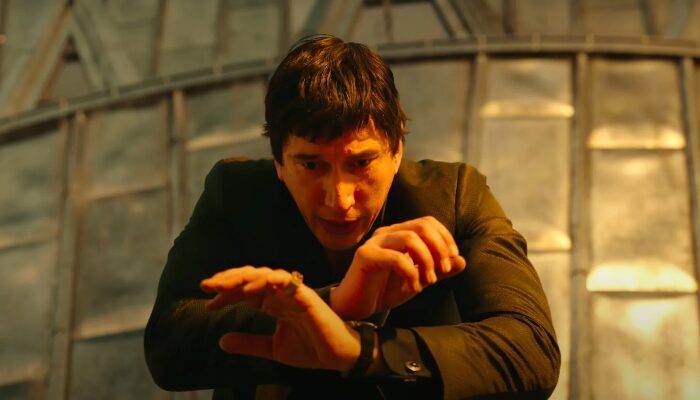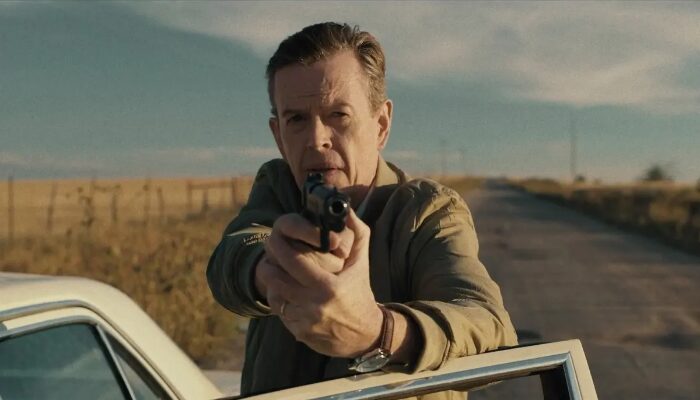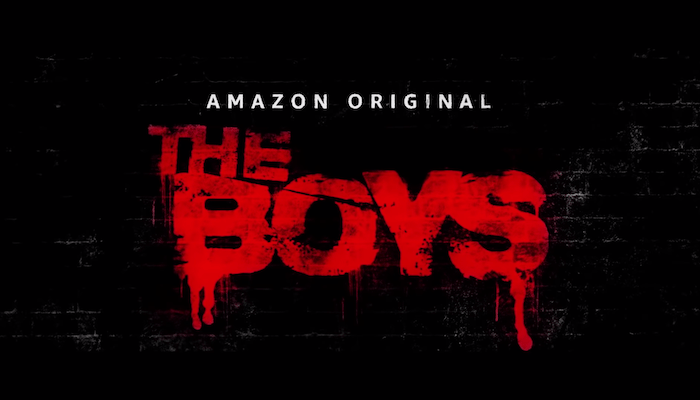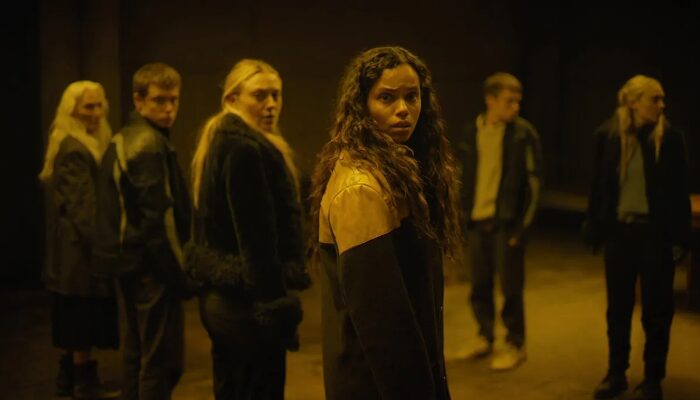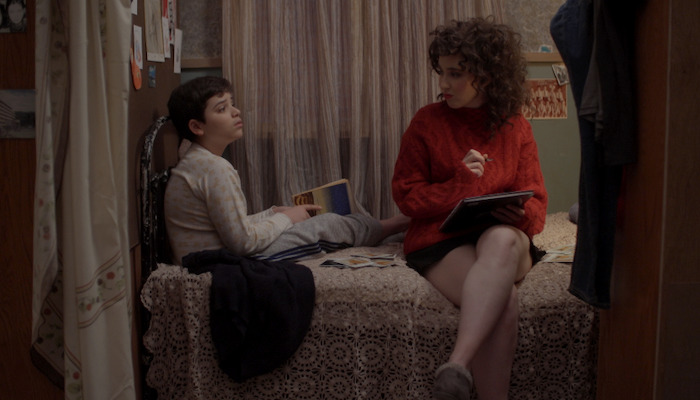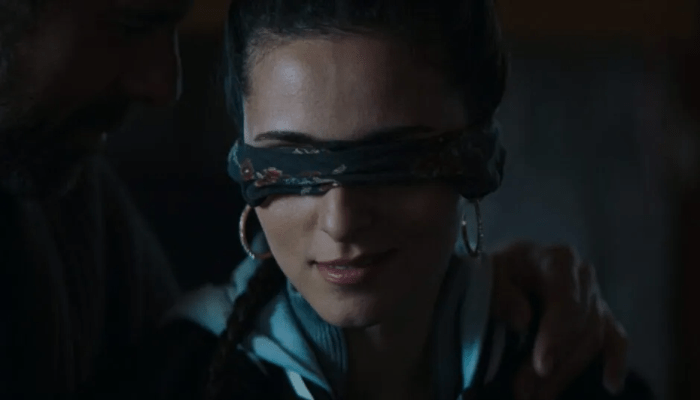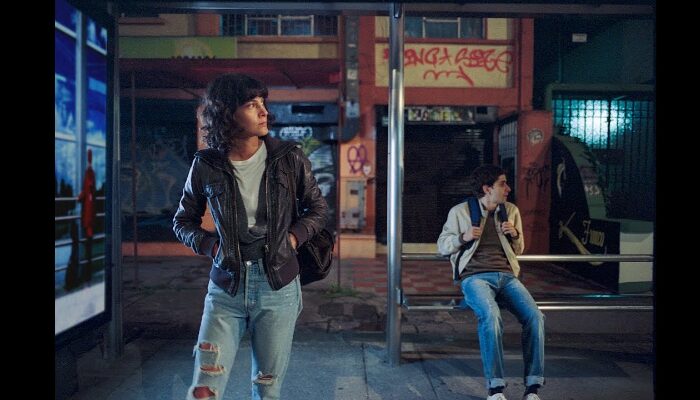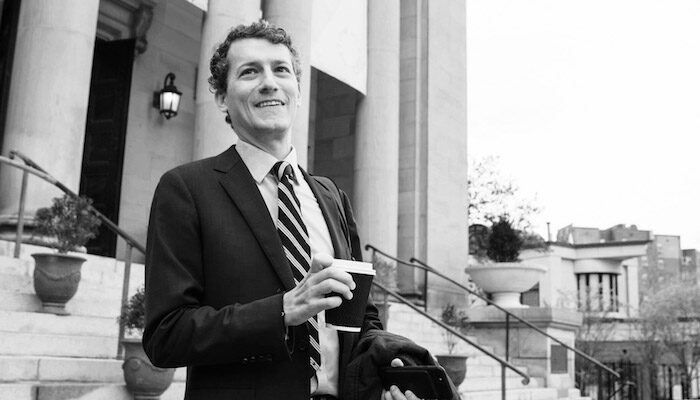Film Review: POTATO DREAMS OF AMERICA: A Campy Gay Auto-Biopic That Can’t Quite Connect Its Dots [SXSW 2021]
Potato Dreams of America Review
Potato Dreams of America (2021) Film Review from the 28th Annual South By Southwest Film Festival, a movie directed by Wes Hurley, and featuring Marya Sea Kaminski, Dan Lauria, Tyler Bocock, Lea DeLaria, Sera Barbieri, Hersh Powers, Jonathan Bennett, Sophia Mitri Schloss, Lauren Tewes, James Grixoni, Annette Toutonghi, Cameron Lee Price, Darlene Sellers, Alycia Delmore, Nicole Santora, Forrest Campbell, L. Gabriel Gonda, and Drew Highlands.
It might be cliché to tell artists to stick to what they know best – i.e. their own experiences – but in Wes Hurley’s case it’s an apt suggestion. Not many people survived the fall of the Soviet Union, an abusive father, rampant homophobia, the culture shock of a trans-Pacific relocation, and the ire of a deeply closeted step-parent … all in their first two decades of their life, nonetheless! But Wes Hurley has, and he’s been telling that story in both documentary and VR form for the past few years. Now, with Potato Dreams of America – the narrative feature adaptation of his tale – Hurley endows his story with all the absurdity of gay camp, the boldness of the Queer New Wave, and the gung-ho (and possibly even jingoistic) brashness of 1980s Hollywood. If only the final product was a more cogent vision and not just stylized, clunky didacticism.
Hurley – born Vasili Naumenko and given the pet name “Potato” by his mother – grew up in the eastern Russian city of Vladivostok at the tail end of the Soviet Union. He witnessed its transition from a corrupt communist state to a corrupt capitalist one (though he seems less interrogative of the latter, for some reason), all the while afraid to confront his burgeoning sexuality amidst an incredibly homophobic peer group. His mother, Lena, endured violence from his alcoholic father, and intimidation from her bosses at the local prison for refusing to cover up the guards’ abuses.
Seeing no future for them in Russia beyond continuous demoralization courtesy of her conservative mother, Lena submits to an American mail-order bride service as a last ticket out. A suitor going by “John” strikes up a marriage with Lena and she whisks herself and Potato across the ocean to Seattle to begin a new life in the United States. Potato falls head over heels for America, especially since he no longer fears for his mother’s safety with “John” nor has to worry about food shortages and power outages. However, between experiences of ostracization and homophobia in his newfound home – from his peers’ general othering to “John’s” deep commitment to Russian Orthodoxy – Potato doubts if he’ll ever be able to truly be himself. But Lena is there to support Potato wholeheartedly, and her unconditional love allows Potato to embrace his homosexuality with no shame … and allows “John” to open up with a big secret.
Potato Dreams of America is divided into two parts: a heavily staged, parodic first part of Potato and Lena’s life in Russia, and a more biographical and melodramatic reenactment second part of their new life in America. Granted, that schism can suggest a sort of “through the looking glass” quality of the mother and son’s move, or it might just be Hurley making a point about artistic license when it comes to one’s own lived experience. But the immediacy of the switch gives his us a sense of extreme narrative whiplash. It also doesn’t help that the sudden change of actors and the aging-up of their characters happens with seemingly no passage of time. (Hersh Powers and Sera Barbieri play Potato and Lena in the Russia segments, wherein everyone has an American accent, while Tyler Bocock and Marya Sea Kaminski play Potato and Lena in the Seattle segment, Russian accents intact.)
What’s more, Hurley doesn’t make his film-within-a-film framing clear until the very end of the ordeal. By then, it’s only further added to the entire film’s general gimmicky grandeur.
Despite Hurley’s obvious stylistic influences that he wears proudly on his sleeve, Potato Dreams of America doesn’t mold them together into anything beyond a slapdash display. Hurley’s feature wants to achieve both the ridiculousness of a Waters and the anarchism of an Araki but he can’t seem to connect the dots to form a unique sensibility of his own. This is not meant to invalidate Hurley’s own history and how he views it in retrospect, but with Potato he doesn’t offer any discernible takeaways from his life story beyond a surface-level strangeness. The end result is lukewarm mimicry that’s periodically amusing, but not particularly enrapturing.
In fact, Potato Dreams of America seems to be just a drawn-out topical retread of Little Potato (his documentary short), with all of that film’s perfunctory directness but none of its singular vision. It also has that short film’s same problem of framing gender identity as a sort of twist/reveal, which at this point is just a tiresome trope. (And I get that gender identity and the journey of self-discovery can be long and fluid and full so much change and “problematic” shit in and of itself … but couldn’t Hurley have used this opportunity to cast an actual trans actor as a trans person instead of what seems to be a cis actor in a wig and make-up?)
Yet in spite of all that, Potato Dreams of America does have its bits of charm and insight. Young Potato’s pleading with his friend that he doesn’t have to succumb to virulent anti-Semitism in post-Soviet Russia is effectively emblematic of Hurley’s fear of unquestioned groupthink; the scenes of Potato’s internalized identity struggles (which he attempts to quell with religious devotion and near-constant exercise) exude a palpable sense of frustration and fear; and Potato’s coming-out scene to Lena is genuinely heartfelt with a sprinkle of silliness from an all-too-accepting mom trying hard to be cool. Even watching Potato late in the film as he brushes off backhanded fetishization of his Russian heritage from his lovers while in the midst of neon-lit trysts speaks bounds about microaggressions he still has to deal with (and maybe even suggests a sense of uninterrogated, internalized Russophobia). These moments imbue the film with genuine emotion and depth, adding vibrancy to a bowl of otherwise stale camp.
In the end, Potato Dreams of America is less of a dumpling and more of a fry: not a lot of savory filling, but shimmering with a bunch of salty excess.
Review: 5/10
Leave your thoughts on this Potato Dreams of America review and the film below in the comments section. Readers seeking to support this type of content can visit our Patreon Page and become one of FilmBook’s patrons. Readers seeking more film reviews can visit our Movie Review Page, our Movie Review Twitter Page, and our Movie Review Facebook Page. Want up-to-the-minute notifications? FilmBook staff members publish articles by Email, Twitter, Facebook, Instagram, Tumblr, Pinterest, Reddit, and Flipboard.
Related Articles
FilmBook's Newsletter
Subscribe to FilmBook’s Daily Newsletter for the latest news!



